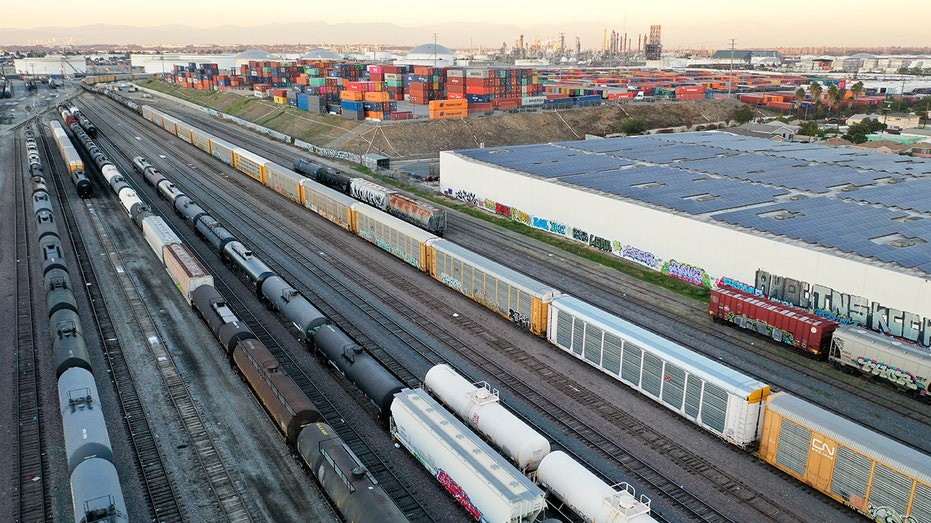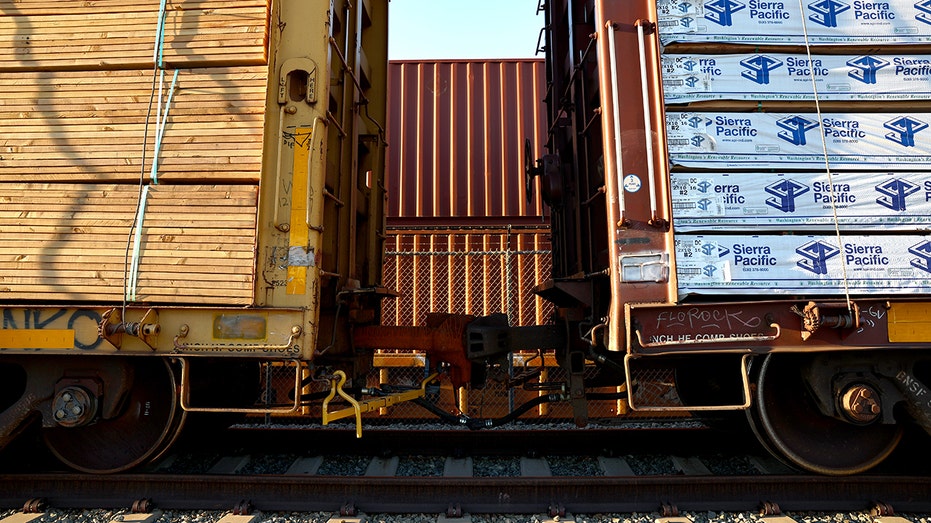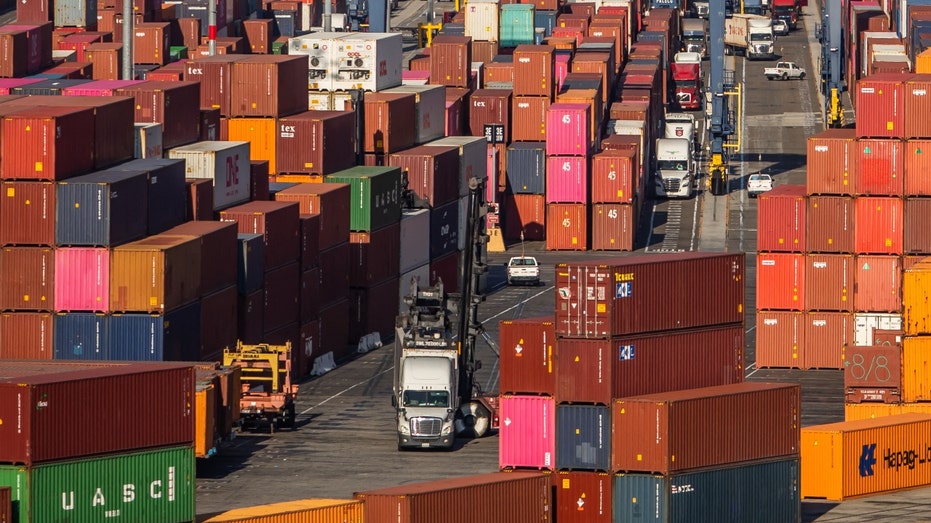US rail critical to economy as strike looms
Rail work stoppage would be catastrophic
Biden: 'I am confident' that crippling nationwide rail strike will be avoided
President Biden met with congressional leaders Tuesday and said he is "confident" a rail strike can be avoided.
Congress is under the gun to pass legislation ending the threat of a nationwide rail strike. Time is running out. A walkout could happen as early as next week, with damaging disruptions to the supply chain set to begin in days.
As lawmakers ready their arguments for or against intervening in the stalled labor negotiations between the major freight railroads and four hold-out unions, one thing that is not up for debate is whether the economy would be crippled if the trains stop running.

Aerial view of freight rail cars sitting in a rail yard near shipping containers on Nov. 22, 2022 in Wilmington, Calif. (Mario Tama/Getty Images / Getty Images)
| Ticker | Security | Last | Change | Change % |
|---|---|---|---|---|
| UNP | UNION PACIFIC CORP. | 262.90 | -2.10 | -0.79% |
| CSX | CSX CORP. | 41.68 | +0.32 | +0.77% |
| NSC | NORFOLK SOUTHERN CORP. | 314.12 | -2.61 | -0.82% |
President Joe Biden warned Tuesday that if rail work stoppage occurs, up to 765,000 Americans "could be put out of work in the first two weeks alone."
The Association of American Railroads, which represents giant carriers including BNSF, CSX, Norfolk Southern and Union Pacific, estimates a rail shutdown would cost the U.S. economy $2 billion a day — and every American would feel it.
BIDEN: ‘I AM CONFIDENT’ CRIPPLING NATIONWIDE RAIL STRIKE WILL BE AVOIDED
The US rail system moves cargo equivalent to that of 467,000 long-haul trucks each day, transporting hazardous chemicals, fertilizers, apparel, household and perishable goods. With the trucking industry already short-handed, currently lacking an estimated 80,000 drivers, it would be impossible for other shipping options to fill the void if a shutdown occurs.
Stopping the rail system would be destructive to the economy during normal times, but is anticipated to be catastrophic in today's economic environment. Supply chains still recovering from COVID-19 pandemic disruptions would be decimated, with an ongoing labor shortage and a lack of alternatives leaving little room for contingency plans. Prices of everyday goods would surge further as inflation continues to hover near a four-decade high.

Freight rail cars loaded with lumber sit on tracks at the Port of Los Angeles on Nov. 22, 2022 in Los Angeles, Calif. (Mario Tama/Getty Images / Getty Images)
RETAIL TRADE GROUP SAYS RAIL STRIKE COULD DERAIL HOLIDAY SHOPPING, OVERALL ECONOMY
On top of the current economic woes, the country is staring down the potential of a strike hitting in the middle of the holiday shopping season — impacting both retailers and customers alike.
Even online purchases would be delayed. The AAR says UPS may be the single largest rail customer in the nation, and shutting down a single train hauling 100 UPS containers would keep 200,000 packages from reaching customers' doorsteps.
American ports, plagued by logjams last year amid a post-pandemic surge in demand, would undoubtedly be hit with disruptions again if a rail strike occurs, given that nearly 30% of U.S. cargo shipments by weight are moved by rail.

Shipping containers and trucks are seen inside the Port of Los Angeles in San Pedro, Calif. November 17, 2021. (Apu Gomes/AFP via Getty Images / Getty Images)
BUSINESS GROUPS URGE CONGRESS TO TAKE 'IMMEDIATE' ACTION TO AVERT RAIL STRIKE
Beyond the industries that would grind to a halt, Amtrak and other commuter trains that use the major rail companies' tracks would be parked, upending the travel of some 7 million passengers a day.
The rail industry's far-reaching impact on the economy is the reason behind Congress passing the Railway Labor Act in 1926 in the first place, granting itself the power to step in and impose terms to avert a strike.
But the intervention is already being met with opposition from both sides of the political aisle, setting the stage for a potential gridlock in Congress that could carry on past the Dec. 9 strike deadline.
GET FOX BUSINESS ON THE GO BY CLICKING HERE
FOX News' Chad Pergram and Reuters contributed to this article.





















